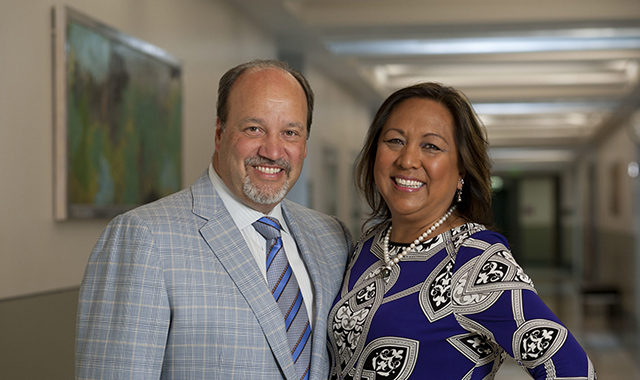The Kudla Fellows program is a prestigious and competitive graduate fellowship program established through the generosity of UTSA alumni Frank, ’85 and Nancy Kudla, MBA ’87 through their Kudla Family Foundation. The program supports graduate student research and education in cyber security.
Kudla Fellowship Benefits
- Access state-of-the-art cyber security research laboratories
- Collaborate with world-class cyber security researchers during a paid graduate research assistantship
- Receive up to $12,000 per year toward your program tuition and fees
- Kudla Fellows are highly sought after by employers
Eligibility
To be eligible for the Kudla Endowed Fellowship in Cybersecurity, applicants must be
- A U.S. citizen
- A student in the UTSA Master of Science in Information Technology (MSIT), Cyber Security Concentration program
- Prospective students who have started an application to the MSIT, Cyber Security Concentration program, and who have an authenticated student abc123, may apply for the fellowship during the application process.
- Maintain full-time student status while in the program
- Commit to a year-round (fall, spring and summer semester) paid Graduate Research Assistantship
- Kudla Fellows may not engage in outside employment during their fellowship, to ensure maximum success and engagement in their academic studies and Graduate Research Assistantship.
Application Requirements
As part of the application process, you will need to provide the following
- Application cover letter
- Resume or CV
- Personal essay (maximum 1,500 words) to answer the following:
- Discuss your career aspirations and research interests relative to cybersecurity.
- How have you and/or how might you help others in the future with your knowledge and reputation in cybersecurity?
- The name of the university, program and GPA for all prior undergraduate and graduate degrees
Application Deadlines
-
- Spring Term: December 1
- Summer Term: April 15
- Fall Term: July 15
About Our Fellowship Benefactors
Longstanding supporters and alumni of UTSA, the Kudlas established dNovusRDI in 1989, a company that specialized in providing high-end information technology services and solutions to government agencies. Growing the company to over 350 employees nationwide, they successfully sold dNovusRDI in 2008. Today, they continue their work as entrepreneurs through FNK Ventures, LLC, a commercial real estate ownership and management company.
Nancy, one of the first women to graduate from the United States Air Force Academy, is co-chair of UTSA’s Campaign Leadership Council and serves on the boards of the college’s Advisory Council and the Cyber & Analytics Advisory Board. Frank sits on the boards for the Catholic Community Foundation and the Catholic Fraternity Fund. Philanthropic leaders in the community, the Kudlas actively promote San Antonio’s considerable cybersecurity resources to leverage the city as a national leader in the cybersecurity industry and in the education of cybersecurity professionals, particularly women and minorities.
In recognition of their support to the college’s cybersecurity programs, the Carlos Alvarez College of Business dedicated the Kudla Foundation Research Laboratory in their name in UTSA’s North Paseo Building.
Kudla Fellows
Daniel Bringhurst
Kendal Hasson
Anh Phan
Edward Dunn
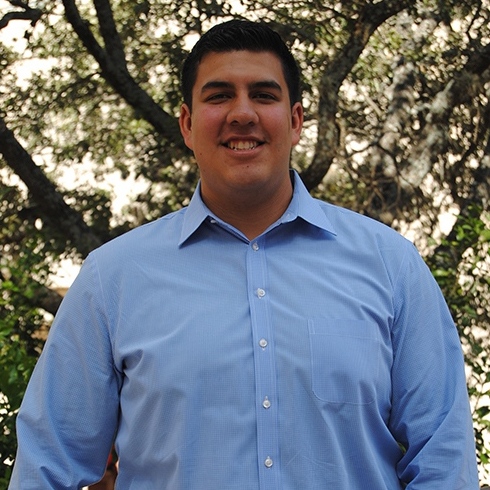 Being the first in my family to earn their bachelor's degree, I wanted to go even further and level up again. The need to continue my knowledge kept me at UTSA to pursue the MSIT program. The Kudla Fellowship allowed me, through completing graduate school, to develop more technical skills as well as my professional and interpersonal skills. The experience gained through the Kudla Fellowship has allowed me to gain new knowledge outside of class in areas such as machine learning and honeypot configurations and develop my skills in different operating systems. Being a part of the Kudla Fellowship and working with Dr. Beebe and my fellow co-workers has allowed me the opportunities to network with different individuals and organizations and expand my knowledge in several areas of cyber security.
Being the first in my family to earn their bachelor's degree, I wanted to go even further and level up again. The need to continue my knowledge kept me at UTSA to pursue the MSIT program. The Kudla Fellowship allowed me, through completing graduate school, to develop more technical skills as well as my professional and interpersonal skills. The experience gained through the Kudla Fellowship has allowed me to gain new knowledge outside of class in areas such as machine learning and honeypot configurations and develop my skills in different operating systems. Being a part of the Kudla Fellowship and working with Dr. Beebe and my fellow co-workers has allowed me the opportunities to network with different individuals and organizations and expand my knowledge in several areas of cyber security.
How did the Kudla Fellowship support you in your career goals?
One of my favorite parts of being a Kudla Fellow was the wide variety of people and organizations I interacted with and learned from with their many different backgrounds in information technology and cyber security.
From hardware reverse engineering to incident response, the exposure to different niches of cyber security has helped shape where I want to focus my career in the future. One aspect that has been rewarding in learning about the industry has been the mentorship program. I was given the opportunity to work with a mentor who is in a leadership position in the cyber field, and I got to spend time shadowing different teams in his cyber operations department.
What was your research experience as a fellow like? Did you learn or apply anything that you later used on the job?
I have been on a number of projects and assignments that spanned from utilizing machine learning through Python to assist with digital forensics, testing Python malware analysis tools and honeypot deployment to learn about IoT malware. Each area had their own obstacles and requirements that required me to expand my knowledge, learn new skills and look at problems in new ways.
Of the projects that I have been a part of, one the most exciting was setting up a honeypot network. I enjoyed the different aspects of learning how honeypots work, the networking behind honeypots and the malware that can affect them. This new subject area led to rabbit hole dives that resulted in new ideas and possibilities on how to setup the project honeypots.
Jeff Knapp
John Newsom
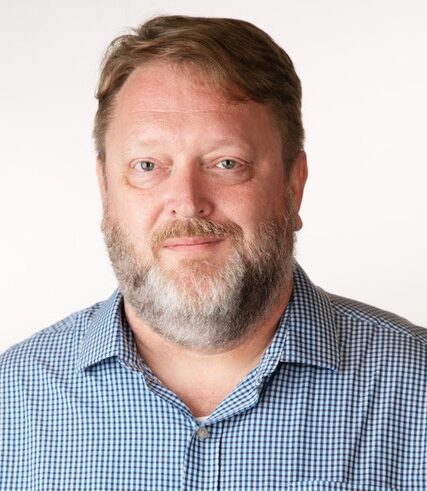 My pursuit of higher education started immediately after high school, but lack of a clear direction led me to the Air Force. The resulting military benefits would eventually empower me to complete my undergraduate degree, focusing on cyber security at UTSA. The final semester of that program placed me in Dr. Nicole Beebe’s Digital Forensics classroom and finally provided me the clear direction for which I had been searching. Dr. Beebe encouraged me to seek a cyber security-focused master’s degree at UTSA through the Kudla Fellowship.
My pursuit of higher education started immediately after high school, but lack of a clear direction led me to the Air Force. The resulting military benefits would eventually empower me to complete my undergraduate degree, focusing on cyber security at UTSA. The final semester of that program placed me in Dr. Nicole Beebe’s Digital Forensics classroom and finally provided me the clear direction for which I had been searching. Dr. Beebe encouraged me to seek a cyber security-focused master’s degree at UTSA through the Kudla Fellowship.
How did the Kudla Fellowship support you in your career goals?
Overall, the Kudla Fellowship has been a transformative experience for me. I am eager to take what I have discovered and apply it to the next chapter in my life. Within a few months into the Kudla Fellowship, I was leading cyber security summer camp training with high school students. Witnessing them learn about this critical career field was incredibly transformative for me. I had never seen the look in someone’s eyes when they start to understand a concept. It was this moment that made me fully appreciate the job of a teacher, and it made me realize teaching is something that I wanted in my future.
What was your research experience as a fellow like? Did you learn or apply anything that you later used on the job?
My research assignments have enabled me to master new skills, harness previous knowledge and take on leadership roles. One of my first assignments required programming in Python, for which I had no prior experience. I was given the time to learn this language and apply it to our research objectives, which provided me with a deep understanding of Python.
The most impactful research assignment required me to lead a team to build a new lab to study Internet-of-Things (IoT) devices as they relate to Building Automation Systems (BAS). This research project has allowed me to collaborate with our U.S. Secret Service partner, explore problems facing real-world BAS installations and utilize my prior design training to create lab fixtures.
Gary Muller
Nicholas Mata
Margaret Bole
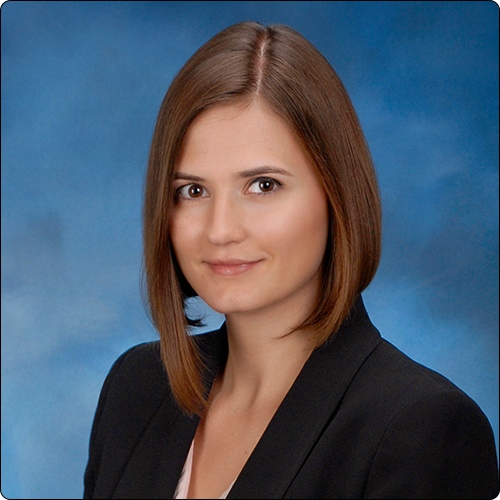 How did the Kudla Fellowship support you in your career goals?
How did the Kudla Fellowship support you in your career goals?
The Kudla Fellowship gave me insight into the world of threat hunting – a topic that I instantly found intriguing. That initial exposure ultimately led to me solidifying my interests in cyber defense, in general, and threat hunting, in particular – so much so that it is now a prominent element of my career.
Catherine Telles
Justin Ibarra
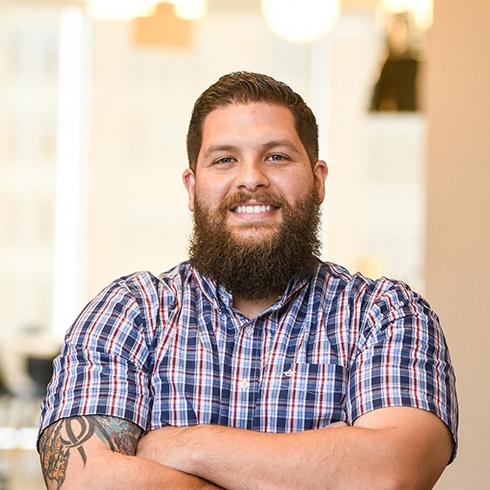 How did the Kudla Fellowship support you in your career goals?
How did the Kudla Fellowship support you in your career goals?
I had a great sense of pride being able to participate in the UTSA cyber security program as part of the Kudla Fellowship. The most impactful experiences of the fellowship were the relationships, interactions and collaborations with professors and fellow researchers. The program does a good job of providing research opportunities, which aim to converge academic and industry approaches to solving relevant problems, with practical solutions as outcomes. The fellowship, amongst many other things, highlights the commitment UTSA has made to the contribution of security leadership and research within industry, the community and academia.
Richard McCaslin
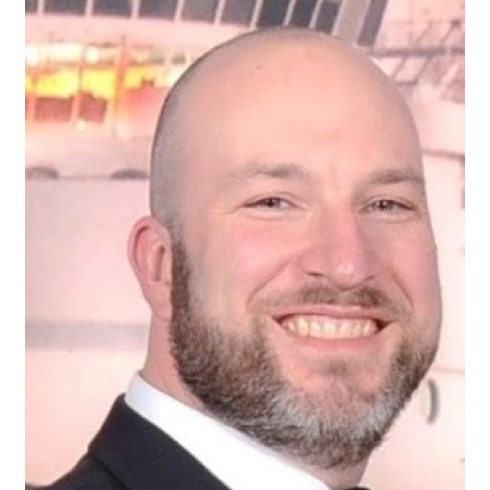 How did the Kudla Fellowship support you in your career goals?
How did the Kudla Fellowship support you in your career goals?
The Kudla Fellowship gave me insight into the world of threat hunting – a topic that I instantly found intriguing. That initial exposure ultimately led to me solidifying my interests in cyber defense, in general, and threat hunting, in particular – so much so that it is now a prominent element of my career.
Michele Maasberg


